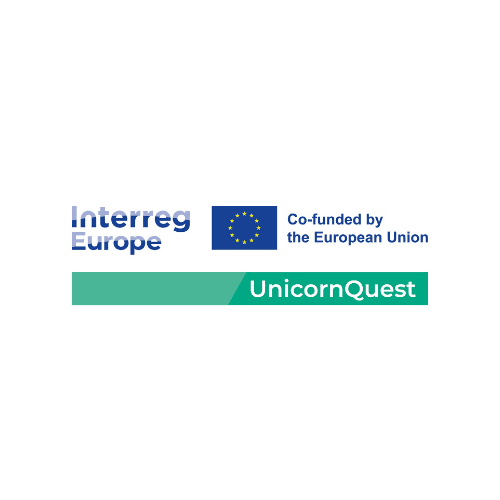UnicornQuest
In 2021 ontstonden in Europa 85 “Unicorns”, nieuwe technologiebedrijven met een waarde van $ 1 miljard of meer. Helaas werden velen van hen gedwongen Europa te verlaten, een enorm verlies van banen, intellectueel eigendom en braindrain.
JRC 2022 rapport ” In search of EU unicorns”, beschrijft dat deze trend zich voortzet. Bedrijven als Just Eat, Skype, Transferwise of UiPath (onder andere) van Europese oorsprong bieden nu duizenden banen en doen investeringen van miljarden vanuit hun hoofdkantoor buiten Europa.
Projectregio’s ervaren ook deze uittocht van start-ups in spe en moeten maatregelen nemen om de grote Unicorn Hubs in de hoofdsteden van de EU en de VS tegen te gaan.
Partnerregio’s willen zich onderscheiden door middel van verschillende ‘little valleys’ die ruimte bieden voor experimenten waarbij de lokale gemeenschap als proeftuin wordt gebruikt voor toekomstige unicorns. Deze ‘kleine valleien’ willen unicorns die willen groeien volgens EU-waarden zoals respect voor mensenrechten, vrijheid, democratie en gelijkheid behouden en aantrekken. Deze waarden vormen de essentiële basis om ‘valleys’ te onderscheiden van andere hubs, vooral die in de VS en het Verre Oosten, waardoor strategische differentiatie voor de regionale ‘valleys’ wordt gecreëerd.
Door de uitwisseling van ervaringen tussen regio’s zullen partners regionale ervaringen delen en de Harvard CASE-methode gebruiken om collegiale uitwisselingen tot stand te brengen en het vergaren van kennis tussen partners te vergemakkelijken, naar verwachting 9 beleidsinstrumenten te verbeteren in de eerste 36 maanden van het project.
Partners
- Science and Technology Park of Alentejo
- North-West Regional Development Agency
- Slovak Innovation and Energy Agency
- Western Development Commission
- Innovation & Management Centre Limited (WestBIC)
- Business Developmnet Friesland Foundation
- Liguria Region
- Zemgale Planning Region
- Pannon Business Network Association
- Hauts-de-France Regional Council
- EuraTechnologies
- San Telmo Business School

 Fashion.ED
Fashion.ED

